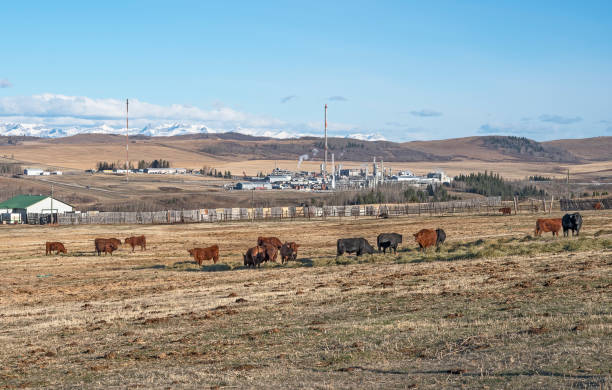Deadline: 31 January 2024
I. Background:
In line with global efforts to reduce greenhouse gases, Ireland is aiming for a 51% reduction in overall greenhouse gas (GHG) emissions by 2030, with the agri-sector tasked with reducing emissions by 25%.
Methane accounts for approximately 65% of GHG emissions from agriculture in Ireland and approximately 90% of the methane is derived from the fermentation of feed in the rumen with 10% emitted from manures/ slurries during storage. Reducing such emissions will require targeted actions, underpinned by relevant research on the efficacy and risks of such actions. In the bovine sector, interventions under investigation include the use of feed additives to reduce enteric methane emissions, and additives to reduce methane emissions from stored slurry. However, such interventions will alter the microbial eco-system, and could likely impact on the survival and gene expression of key zoonotic pathogens, such as Shigatoxigenic E.coli, Salmonella spp and Listeria monocytogenes in the bovine production chain. This is a significant knowledge gap to be addressed, in tandem with steps to further develop these interventions for commercial implementation.
II. Project Information
Applications are invited for a PhD Walsh Scholarship Project focusing on how climate change mitigation strategies, proposed for beef production, including the use of additives to reduce enteric methane emissions in bovine animals and treatments to reduce methane in stored waste and slurry, impact on key zoonotic pathogens in these adapted environments. The research will use in vitro model systems treated with methane reducing additives or treatments, to study survival and gene expression of selected pathogens. This proposed project will provide a critical assessment on the risk for microbial food safety from climate action interventions.
The PhD Scholarship is a joint project between Teagasc and Technological University of Dublin (TUD). Teagasc supervisors: Dr Geraldine Duffy and Dr Kaye Burgess and Technological University of Dublin (TUD) supervisor: Prof Jesús María Frías Celayeta. The PhD student will be primarily based at Teagasc Food Research Centre, Ashtown, Dublin D15 DY05.
III. Qualification required
- An Honours degree in Microbiology, Food and Agriculture Science or related discipline is required.
- The normal academic qualification expected for a PhD studentship is an Upper Second Class (Hons) Degree (2H1 or equivalent).
- Applicants with a relevant Master’s degree are also eligible to apply.
- The successful candidate should be highly self-motivated and work well as part of a wider research team.
- Laboratory experience with microbiological techniques, a full driving licence and agri-food industry experience are desirable, but not essential.
- The candidate must be proficient in both written and spoken English
IV. Award
- The Scholarship funding is €25,000 per annum, and includes University fees of up to a maximum of €6,000 and flat rate stipend of €19,000 pa is tenable for 4 years.
- International students are eligible for the funding but will need to find their own support to cover the extra tuition fees chargeable to non EU students.
V. How To Apply?
To apply, please, send an electronic copy of a Curriculum Vitae (including the names and contact details of two referees) and a cover letter, which should describe your interest in the project and the relevance of your academic training to this Scholarship, should be sent to [email protected]
